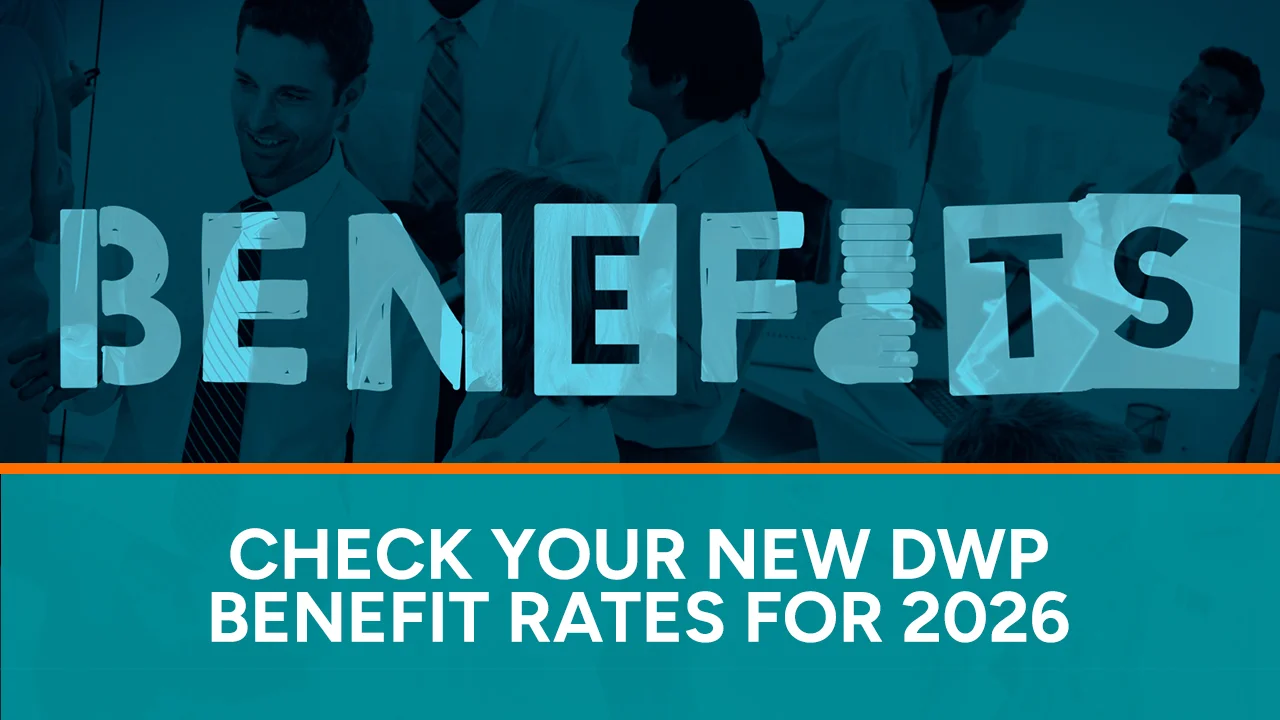Millions in the UK are waking up to higher Universal Credit payments this month. If you want to know how this affects your money, you’re in the right place. This guide will explain the latest updates on Universal Credit and the increases based on age and circumstances in simple terms.
At Clarkwell & Co. Chartered Certified Accountants London, we know that even small changes in benefits can impact your household budget. That’s why we’re examining the new Universal Credit rates for 2025 and what they mean for you. We’ll provide updates and practical advice to help you feel more secure about your finances.
Why Are Universal Credit Payments Increasing in 2025?
The DWP benefits increase in the UK for 2025 is part of the government’s yearly adjustment to match benefits with inflation. This year, Universal Credit payments rose by 1.7%, in line with the Consumer Price Index (CPI) from September 2024. This increase aims to help low-income families manage rising living costs.
Although the increase seems small, it significantly impacts those who depend on benefits for daily expenses. Every pound matters when paying for rent, bills, childcare, and travel. Knowing how and when these increases happen is important to make the most of them.
Since Universal Credit is paid monthly in arrears, many claimants will notice the increase in their future payments, not right away in April. This delay often causes confusion. It’s crucial to know when your assessment period starts to plan effectively.
Understanding the Universal Credit Assessment Period
Before we review the numbers, let’s clarify the Universal Credit assessment period. Your payments depend on your income and situation during a monthly period that begins when you make your claim. This period decides how much you get each month.
For instance, if your assessment period starts on 7 April, you will receive the increased payment in May. If it starts on 6 April or earlier, you won’t see the new rate until your next assessment period. This is important for managing expectations about when to expect Universal Credit payments.
You will receive your monthly Universal Credit payment a week after your assessment period ends. Knowing this schedule helps you manage your finances and avoid surprises. Many people mistakenly think the increase will appear in April. In reality, only payments linked to assessment periods starting on or after 7 April 2025 will show the new rates.
How Much Is Universal Credit in 2025?
Here are the new Universal Credit rates for the standard allowance, which is the basic monthly payment before any extra support like child or housing benefits:
- Single claimant under 25: £316.98 (up from £311.68)
- Single claimant 25 or over: £400.14 (up from £393.45)
- Joint claimants both under 25: £497.55 (up from £489.23)
- Joint claimants, one or both 25 or over: £628.10 (up from £617.60)
The Universal Credit increase in 2025 may not look big at first, but it adds up over the year. For those over 25, it means an extra £80.28 annually, which can help with groceries or bills. When combined with other benefits, it can create a much better safety net.
Knowing these numbers is important if you are budgeting for your household, paying off debt, or planning future expenses. Even small increases can make a big difference for families dealing with rising costs for essentials like food, energy, and rent.
Why the Increase Matters: Real-Life Impact
A slight increase in Universal Credit payments can help low-income households. With living costs still high, this rise helps individuals and families manage their expenses. It might even prevent serious problems like evictions or utility shut-offs.
At Clarkwell & Co., we often help clients handle their finances during these changes. For many, this increase can reduce the need for credit or delay urgent loans. We’ve seen how a £5 monthly increase can make a real difference, especially with good budgeting and financial planning.
This update can also support long-term stability. Households that were struggling to pay rent or debts can now plan for the future with less stress.
What Else Is Included in Your Universal Credit?
The Universal Credit standard allowance is only the starting point. You might qualify for extra support based on your circumstances:
- Child element: if you have children
- Housing element for rent support
- Disability or health-related components
- Carer’s element
- Childcare costs support
These extra amounts have gone up by 1.7% because of inflation. Now is a good time to check what you’re entitled to. If you need help, professional advice is available. (Looking for expert advice? Our Financial Planning Services London can help.)
Many people are unaware that they may qualify for additional benefits. These benefits are not applied automatically; you need to report your situation. That’s why it’s a good idea to review your benefits at least once a year.
Important: Keep the DWP Updated on Changes
People often get overpaid or underpaid because they don’t tell the DWP about changes in their situation. If your work hours change, your living situation changes, or someone moves in or out, you must report it.
Why is this important? Any differences during your Universal Credit assessment can lead to wrong payments. This might mean unexpected repayments, which no one wants right now. It could also mean you receive less money than you should, making it harder to pay your bills.
It’s best to be proactive. You can easily report changes through your Universal Credit online account. Keeping your information up to date helps you avoid problems and ensures you receive all the money you’re entitled to.
Tips for Managing Your Universal Credit Monthly Payment
Now that you have the new rates, it’s time to use them wisely. Here are some smart ways to manage your Universal Credit payment each month:
- Budget based on your new amount: Adjust for the increase.
- Track your assessment period: Know when changes will apply.
- Use benefits calculators: Check if you’re entitled to more.
- Avoid overpayments: Report changes on time.
- Seek financial guidance: Consider consulting a professional accountant.
- Set up direct debits: Automate bills to avoid late fees.
- Create an emergency buffer: Save even a few pounds monthly.
At Clarkwell & Co., we assist hundreds of people every year. We help them understand their rights and avoid costly mistakes. It’s not just about receiving payments; it’s about being financially ready, informed, and confident.
Still on Legacy Benefits? Here’s What You Need to Know
If you still get one of the six old benefits (like Tax Credits or Income Support), the move to Universal Credit is happening now. The DWP plans to have everyone switched over by March 2026.
You will be contacted directly, but it’s smart to take action. Learning how Universal Credit works, especially the assessment period and monthly payment setup, will help you transition smoothly.
If you’re unsure about switching early, getting professional advice can help you compare the benefits of both systems. This might lead to higher payments or better support for your needs.
Stay Ahead with the Right Advice
In uncertain economic times, it’s crucial to stay informed about the DWP Universal Credit updates. Understanding the Universal Credit amount for 2025 and how the increase affects you can help you manage your finances better.
At Clarkwell & Co., we do more than just accounting; we partner with you on your financial journey. Whether you need help with benefits, taxes, or long-term planning, our team offers reliable, personalised advice. We recommend that anyone receiving benefits schedule a quick review with a professional to ensure they receive the correct amount.
If you haven’t done so, check out how our Chartered Certified Accountants and Financial Planning Services in London can keep you on track this year. Your finances deserve as much attention as your career, family, and health; don’t leave them to chance.







